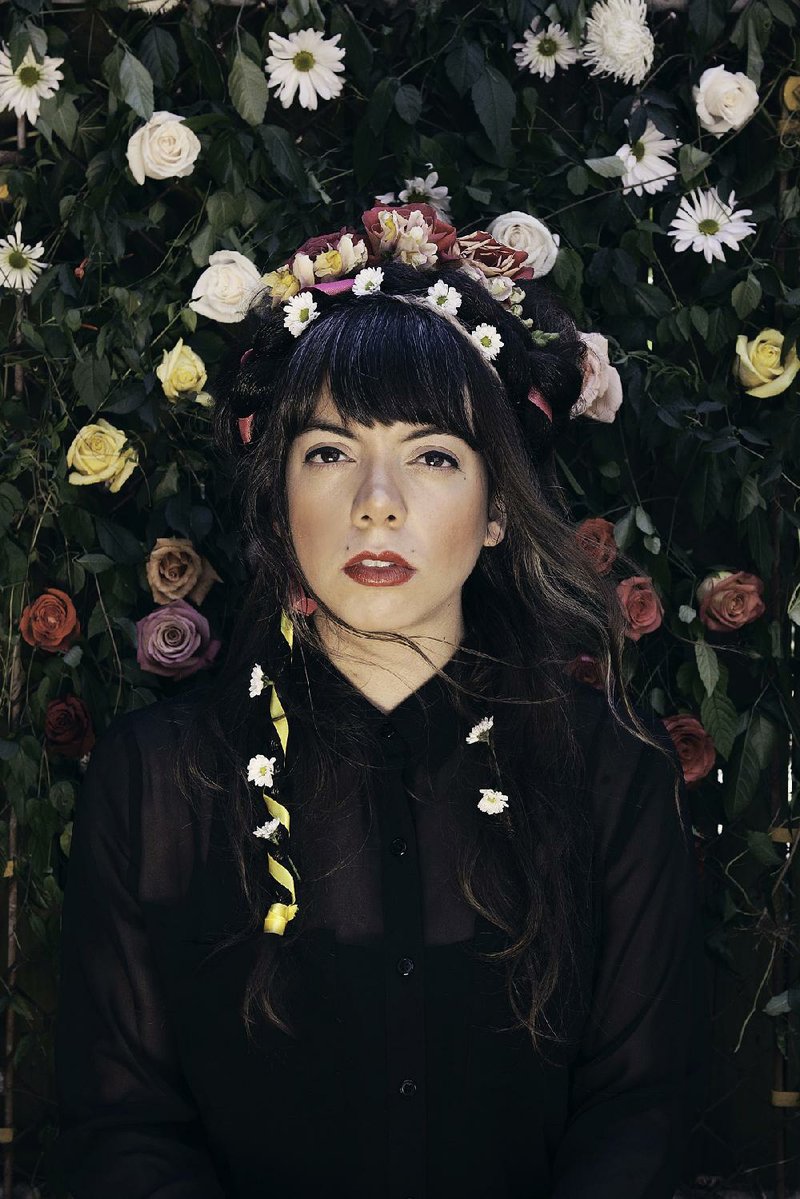New Orleans proudly counts a lot of "riff raff" among its populace, and some of them are not reluctant to cheer about it -- and, in fact, to even name a band Hurray for the Riff Raff. And with the band's sixth album, Small Town Heroes, the applause has started to spread.
The Riff Raff released Small Town Heroes in February 2014 on ATO Records (which was founded by fellow musician Dave Matthews). The album came to the attention of music editors at National Public Radio, who had already taken notice of the band, thanks to an appearance at the 2013 Newport (R.I.) Folk Festival. The band is continuing to take advantage of the momentum.
"We're planning a new album in the fall," says the band's lead singer, songwriter, acoustic guitarist and sometime banjo player Alynda Lee Segarra. "I'm over in Nashville [Tenn.], dreaming up ideas. When we got the ATO deal, it was a real turning point. It felt like an introduction to the world."
Segarra has referred to her cohorts as more of a collective than a band. The lineup includes Yosi Perlstein on fiddle and drums, Casey McAllister on keyboards, and two members of another band, The Deslondes: Sam Doores on guitar and Dan Cutler on bass.
Segarra, whose background is in Puerto Rico, grew up in the Bronx and early on had wanderlust driving her hither and yon. As soon as she became a teenager, she began riding subways to learn more about others, and at 17, she switched from the subway rails to hopping freight trains.
"I was living the hobo lifestyle," she says. "Woody Guthrie was a big influence, and I learned everything I knew playing in the streets. I ended up in New Orleans right before Katrina, living as a vagrant, I guess you'd say. But I was in Montreal when Katrina hit. I was avoiding the heat at the time. I didn't go back until the following January, because I was scared to go back. I didn't want to go back and not be helping, and now the city's rebuilding."
In 2007, the Riff Raff collective began self-releasing EPs and CDs, becoming a Crescent City sensation by 2012, when they released Live at 2012 New Orleans Jazz & Heritage Festival. A year later came My Dearest Darkest Neighbor, a collection of cover songs by Joni Mitchell, Gillian Welch, Lucinda Williams, Townes Van Zandt, Billie Holiday, Leadbelly, John Lennon, George Harrison and Hank Williams.
One of the songs on Small Town Heroes, "The Body Electric," is dedicated to a woman in India killed after a 2012 gang rape on a bus.
"I had read about that, and how someone there had killed his wife because she was so beautiful and he thought she had cheated on him," Segarra says. "I started feeling a little crazy and wanted to give a voice to those victims."
Another song on the album, "Levon's Dream," was inspired by Segarra's love of Levon Helm, the late Arkansas musician. "I'm heart broke, heart sick, I just cannot be fixed," she sings.
"I loved The Band," Segarra says, referring to Helm's legendary group. "He was such a bearer of light. He was such a real person, and he showed you could be a musician and still care about your family and be a real person. His music pulls people together."
Another aspect of Hurray for the Riff Raff's prominence is their advocacy for equality, as Segarra talks about the ways in which she thinks the band differs from the norm.
"People don't often see a band with a transgender drummer/fiddle player," she notes. "The gay and queer community in New Orleans were the first group of fans who took to us, and the fiddle player and I both identify as queer."
Style on 05/05/2015
